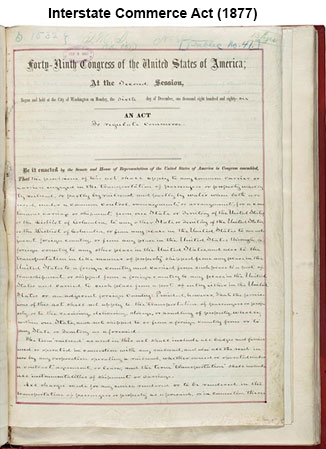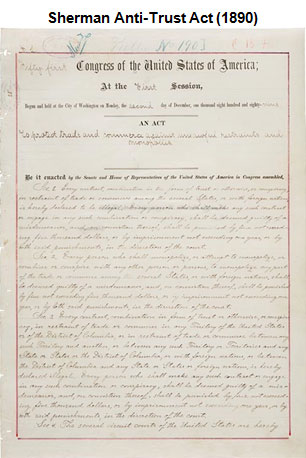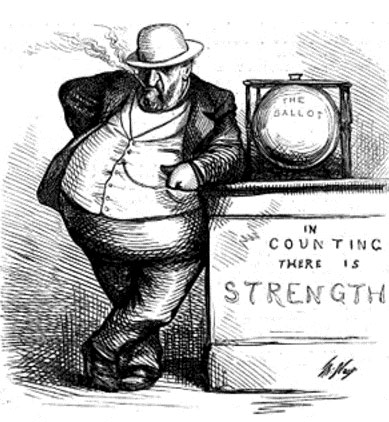
Source: Interstate Commerce Act, Our Documents
During the Gilded Age, the federal government experienced extreme difficulties. Congress had a reputation of being inefficient and prone to corruption. There was little legislation passed during this time. The federal government initially supported big businesses. However, the federal government later passed two crucial pieces of legislation that impacted the actions of big business owners in the United States. Read below to learn more about these acts.

Source: Interstate Commerce Act, Our Documents
“In 1887 Congress passed the Interstate Commerce Act, making the railroads the first industry subject to Federal regulation. Congress passed the law largely in response to public demand that railroad operations be regulated. The act also established a five-member enforcement board known as the Interstate Commerce Commission. In the years following the Civil War, railroads were privately owned and entirely unregulated. The railroad companies held a natural monopoly in the areas that only they serviced.”
— Excerpt from Our Documents
The Interstate Commerce Act was the first step in regulating monopolies, but more enforcement was needed. In 1890, Congress passed the Sherman Anti-Trust Act.

Source: Sherman Anti-Trust Act, Our Documents
“The Sherman Antitrust Act of 1890 was the first measure passed by the U.S. Congress to prohibit trusts . . . Several states had passed similar laws, but they were limited to intrastate businesses. The Sherman Antitrust Act was based on the constitutional power of Congress to regulate interstate commerce.”
— Excerpt from Our Documents
The Senate controlled Congress, and big business owners heavily influenced senators. Government officials were easily bought, and they often traded political favors for bribes. Bribery and other acts of corruption did not stop at the federal level. Political machines controlled governments at the state and local levels. Political machines were organized political systems that traded jobs and other services in exchange for votes. A small group or a single boss controlled these political organizations.

Source: American politics collection, Thomas Nast, University of Texas
Thomas Nast, a famous cartoonist, used cartoons to inform people about the political bosses and political machines. He frequently featured Boss Tweed. William Magear Tweed was a political boss in New York City who used jobs and favors to create a loyal voter base. Although he helped many immigrants, he did so through corruption.
View a video about Boss Tweed and his impact on the politics of New York during the Gilded Age.
Source: Boss Tweed - Thomas Nast, Jim Keefe, YouTube
The Gilded Age lasted from the 1870s through the 1890s. The United States was transitioning from an agricultural society to an industrial one. The Gilded Age impacted American society economically, socially, and politically. The Gilded Age was a time of great wealth for a few and poverty for many.